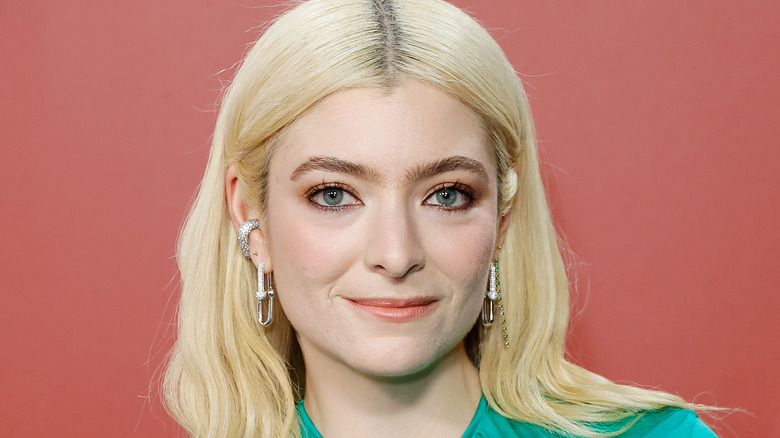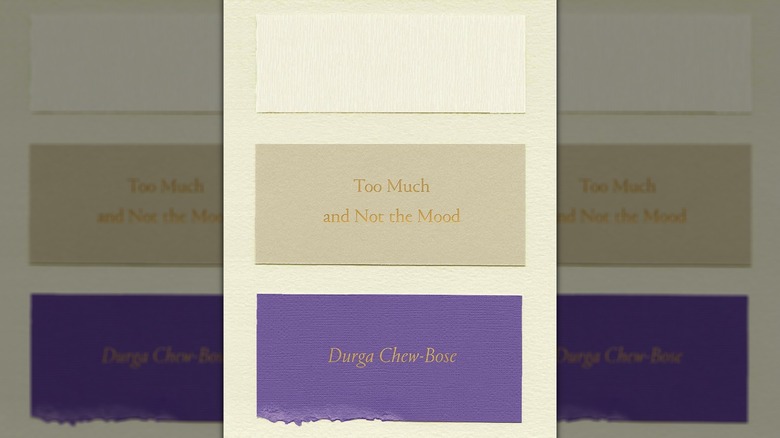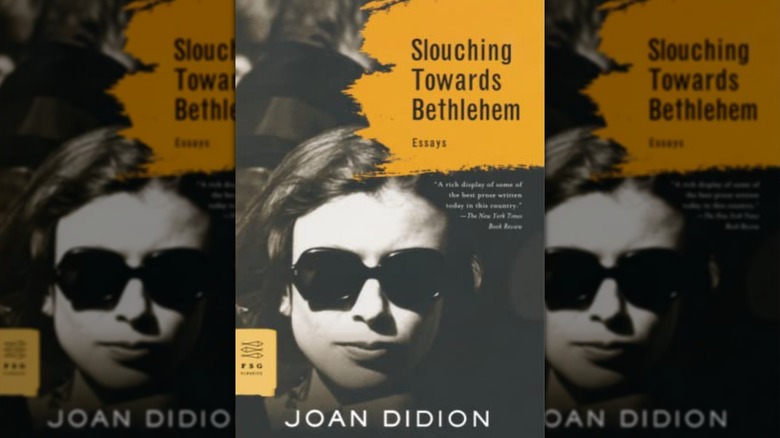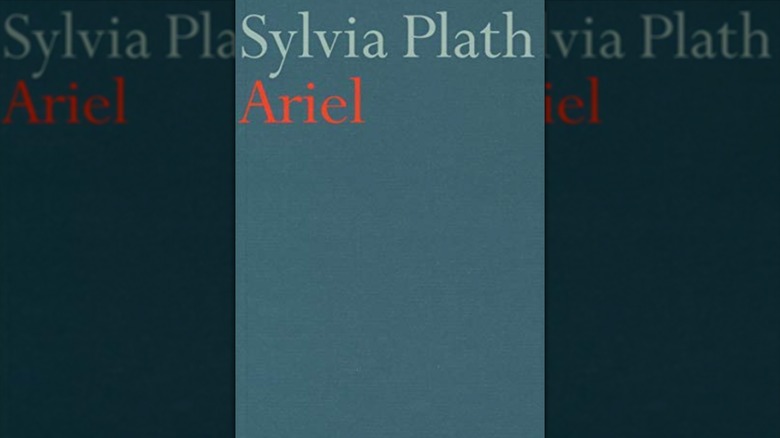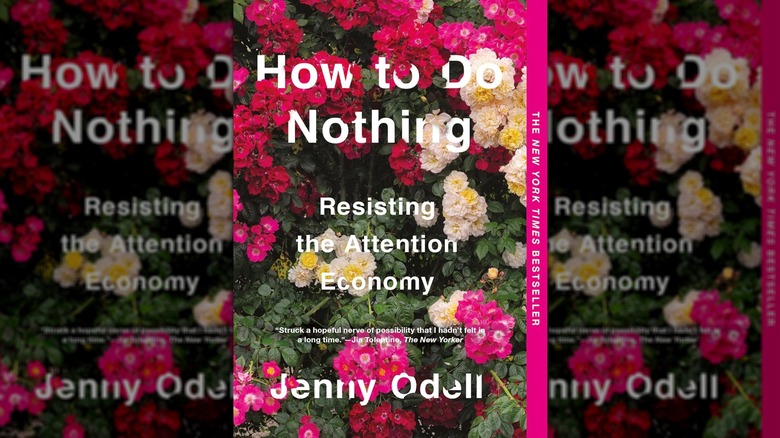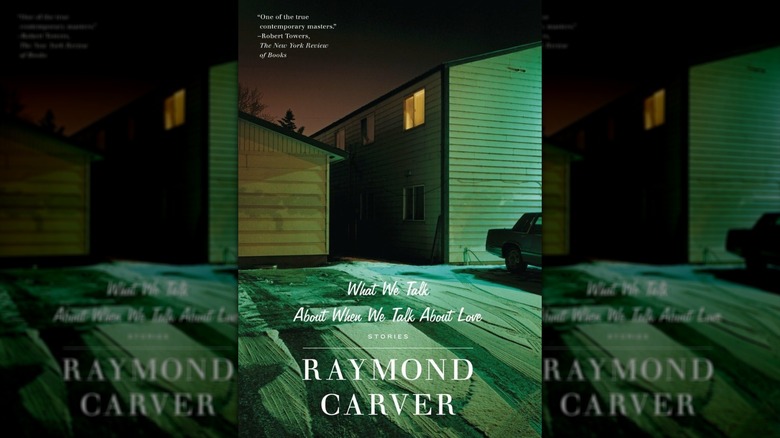Lorde's Favorite Books Are Deep, Dark, And Cathartic (Just Like Her Music)
We may receive a commission on purchases made from links.
New Zealand singer-songwriter Lorde, whose real name is Ella Yelich-O'Connor, understands the power of books, and her exceptional literary taste reflects that. During a 2017 interview with Rolling Stone, Lorde called herself a "library girl," admitting to her status as a bibliophile. Over the years, on Reddit, Tumblr, and during interviews, Lorde has spoken about the books that are most meaningful to her, and the brilliant Book Riot compiled this information into a comprehensive list of Lorde's most treasured literary pursuits. Her fandom also created content on Instagram, listing her most beloved books, so we know that Lorde inspires through music and reading recommendations. It's certainly inspirational, as we're all eager to find workable ways to carve out more reading time in our busy lives.
Lorde's literary inclination is also fueled familially. Her mother, Sonja Yelich, is a New Zealand-based poet, with several collections of published poetry under her belt. It'll come as no surprise that Lorde's favorite books include several collections of poetry. It's obviously in her DNA. But it's not just poetry that the singer loves; Lorde has also raved about novels, nonfiction, and short stories, so we're here to talk about these favorite reads from our "Melodrama" queen.
'Too Much and Not the Mood' by Durga Chew-Bose
Lorde is such a fan of Canadian writer Durga Chew-Bose and her anthology "Too Much and Not the Mood" that she interviewed the author in May 2018 at the Auckland Writers Festival. To keep the attention on Chew-Bose, Lorde went by her real name, Ella Yelich-O'Connor, in the festival's program. In conversation, Lorde said that Chew-Bose was finishing her book at the same time that the musician was finishing her album "Melodrama," and the two connected about their work.
In a clip of the interview shared on YouTube, fans couldn't get over how lovely the conversation was between the two artists, and applauded Lorde for her gracious interviewing skills. "[L]orde is actually better at conducting interviews than most talk show host," someone commented. "[W]ith her it's like an actual conversation trying to get to know the person..." Fans really enjoyed the parallels between the two, with "Too Much and Not in the Mood" and "Melodrama," and felt that the conversation brought out the best in both of these wordsmiths. "I read Durga's book around the time Melodrama came out and a year later I still love the album and the book," another person wrote. "These two writers just have [this] incredible way with their words and it constantly leaves me in awe and I just love them so much." You can tell in the interview how much Lorde admires Chew-Bose, so her book is well worth a read!
'Slouching Towards Bethlehem' by Joan Didion
Because of her social media presence, we know that Lorde loves Joan Didion, particularly her 1968 collection of essays "Slouching Towards Bethlehem." For several years now, Lorde's Instagram bio has been a quote from Didion's book, reading: "The themes are always the same. A return to innocence... The mysteries of the blood. An itch for the transcendental..."
It's no wonder that Didion's collection has worked its way into Lorde's aesthetic. "Slouching Towards Bethlehem" was a publication that caught the vibe of American life in the 1960s, and Didion, a pioneer of New Journalism, captured it in her moving book. Reviewers on GoodReads have as much fervor for Didion as Lorde herself seems to have. "[L]ike with any [D]idion work, she always approaches her subjects with such precision and purpose," one reviewer began. "[E]very language choice is intentional, every sentence is so eloquent, every detail is meticulously written. [S]he perfectly captures the essence of 1960s [C]alifornia and its cultural politics, somehow making me nostalgic for a place and time [I] never even experienced." Another reviewer lamented about discovering Didion later on in life. "Joan Didion, where have you been all my life?" they asked, calling the essays in this collection "wondrous." Lorde certainly seems to feel the same, since Didion's quote has held the space of her bio for a long time now.
'Ariel' by Sylvia Plath
When Lorde was breaking out into the music scene, Rolling Stone opened a 2014 article on the New Zealand songwriter with: "Lorde is 17, lives with her parents and loves Sylvia Plath." Lorde's love of the American poet preceded almost everything else. While Plath published her novel, "The Bell Jar," and several collections of poetry, her collection "Ariel," which was first published in 1965, is arguably her most famous. Plath died in 1963, and it was her husband, Ted Hughes, who had "Ariel" posthumously published.
Colloquially, Lorde was dubbed the "Sylvia Plath of pop music." Lorde's affinity for Plath became so evident that in April 2014, while being interviewed by Fashion, Lorde stressed a differentiation between herself and the poet. "Never for a second would I put myself beside a genius like Sylvia Plath!" Lorde began. "I may have specific tastes but I'm not trying to be avant-garde with my approach or my music. I like indie [rock], pop and literature. I like to play with them but that doesn't make me a genius." While we might argue with that, we can certainly see why Lorde has been so inspired by Plath.
Reviewers of "Ariel" on GoodReads were consistently moved by Plath's work. "Haunting and honest — a scalpel that cuts so deep and quick you don't even feel it. The first time I read Ariel I was amazed by the depth and honesty of the poems," one person wrote. Another wrote, "Bitter, brutal, intelligent and moving."
'How to Do Nothing: Resisting the Attention Economy' by Jenny Odell
Lorde was deeply moved by Jenny Odell's 2019 book "How to Do Nothing: Resisting the Attention Economy." Rather than an aesthetic project, Lorde was drawn to the book because she was spending too much time online. "I would see my screen time go to, like, 11 hours and I knew it was just looking at the Daily Mail," Lorde told The New York Times. "I remember sitting up in bed and realizing I could get to the end of my life and have done this every day. And it's up to me to choose, right now. So I just sort of chose." During this revelation, Lorde admitted that both Odell's book and Annie Dillard's "Pilgrim at Tinker Creek" were revolutionary in getting her offline and back in the world.
This book got mixed reviews on GoodReads. "This was a strange, meandering, prone-to-tangents, quirky book but I really enjoyed it," one reviewer wrote, noting that it meandered a little too far in some places. Another reviewer enjoyed Odell's fresh take on attention and capitalism. "A thoughtful, steadying book about the importance of doing nothing in a capitalist culture that always encourages productivity," they began. "Instead of providing hard and fast strategies to disengage from work and social media, Jenny Odell offers more of a smart, flowing reflection on the importance of separating ourselves from feeling like we have to work..." It certainly sounds like it was important to Lorde!
'What We Talk About When We Talk About Love' by Raymond Carver
Lorde has openly talked about her love for American short story writer and poet Raymond Carver, particularly his collection of short stories entitled "What We Talk About When We Talk About Love." When Lorde was interviewed by Rolling Stone in 2014, she spoke about Carver and his aesthetic influence. "Raymond Carver is definitely one," Lorde said, speaking of influential authors. "I have this thing with, like, words being in that perfect order, and you know exactly how they're trying to make you feel. And the order of the words ... just, like, slapping you in the heart: 'Oh my gosh, I totally get it.' And I am really into how words sound out loud, so I was always the kid who would, like, read the page of the book to herself in her room over and over and over. And Raymond Carver is great for that."
On GoodReads, most readers felt the same way that Lorde did about Carver's beloved book. "A collection of slice-of-life short stories that mostly go nowhere and end ambiguously, and for some damn reason I loved them," one reviewer shared. "Raymond Carver is simply one of the best post-war American writers, simply because he keeps everything within, simple, crisp and clear," another person gushed. "He honed his writing craft to such a degree here that this collection may well be his best work." It's no wonder Lorde loves his short stories.
